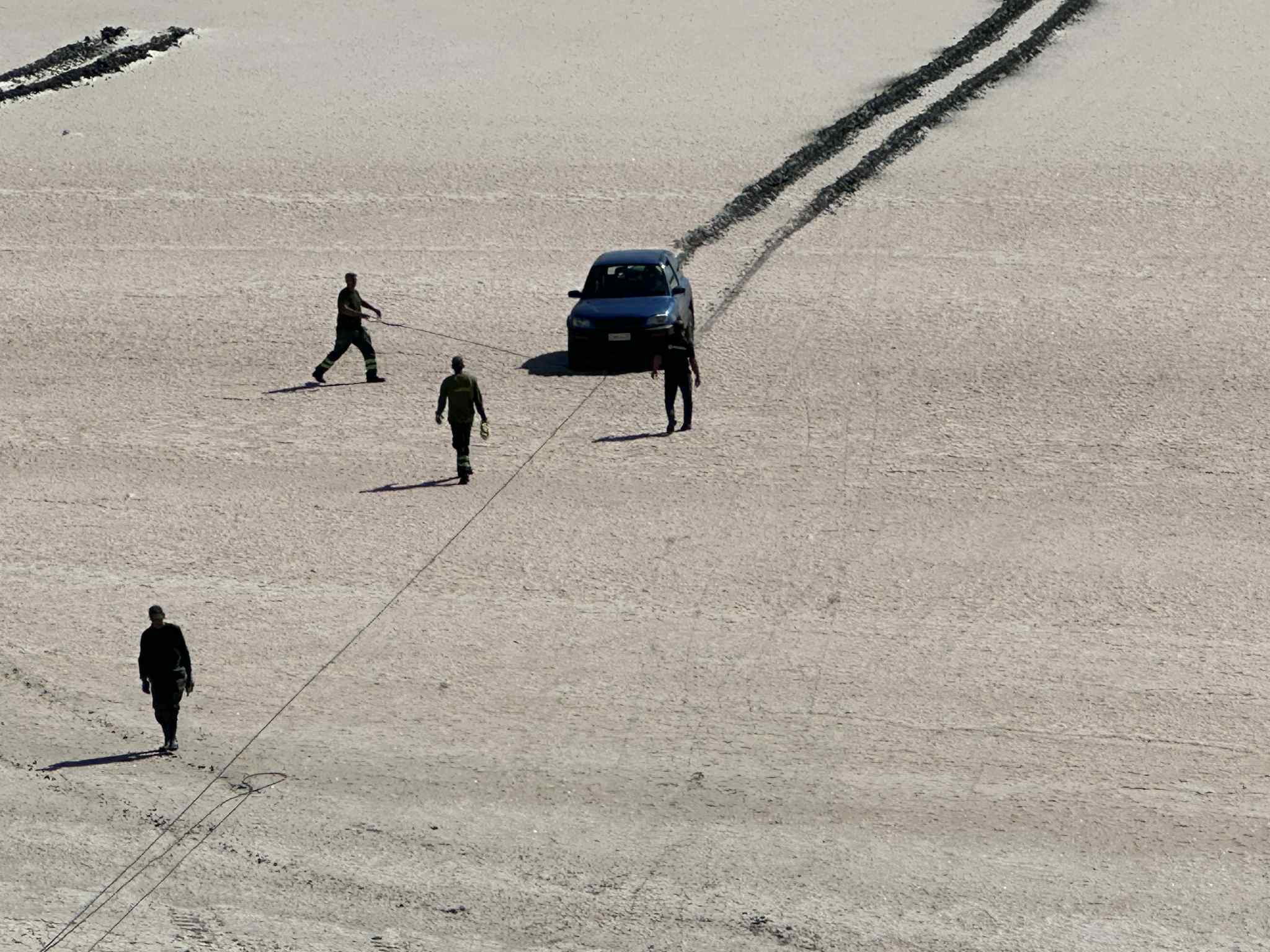Authorities have removed two vehicles that became trapped on Larnaca’s salt lake last week, with both vehicles successfully freed after a prolonged operation on Wednesday.
The recovery began around 7am, led by a private company using heavy machinery, facing difficulties as mud had risen during the towing and towing cables broke several times.
Police confirmed that one vehicle appeared to enter the shallow edge of the lake and become trapped, while a second tried to assist and also got stuck. The first vehicle was removed around 11.30am, while the second was freed shortly before 2pm.
Once freed, the vehicles were transferred to Larnaca municipality’s storage facilities, and the owner of both vehicles will only be allowed to retrieve them once he has paid the €2,000 fine imposed by the game and fauna service and the full cost of the recovery operation, estimated between €5,000 and €8,000.
Larnaca municipality said the operation was carried out by a company with heavy machinery to remove the vehicles from one of Cyprus’ most sensitive natural habitats.
“Today, the company will try to free the vehicles. If this is not possible, another attempt will be made on Thursday,” Larnaca mayor Andreas Vyras said ahead of the operation.
He added that while the removal is challenging, he is optimistic it will succeed.
Deputy mayor of Larnaca, Iasonas Iasonides, commented during the vehicle recovery:
“The operation seems successful, but there have been delays because the cars are submerged in mud and need careful lifting. It’s a tough job, but it’s ongoing. We hope that by 2pm, at the latest, both vehicles will have been removed.”
He added that the owner had told municipal services he entered the lake to get closer to the sunset and take better photographs.
Ahead of the operation, the environment department emphasised that “the priority is to minimise environmental impact. Any recovery method must cause the least possible disturbance to the birds and the habitat,” Cyprus Mail was told.
Larnaca municipality reiterated that vehicle access to the salt lake is forbidden and said additional signage and patrols may be introduced to prevent further incidents. It also issued a statement expressing “strong concern” over the illegal entry of vehicles into the area.
Larnaca salt lake is a Natura 2000 protected site, located near the city centre and airport.
It is home to thousands of flamingos and other species each winter.
Driving into the lake is strictly prohibited, as tyre tracks and soil compression can destroy the salt crust and damage microorganisms vital to the wetland’s balance. The lake is part of the Ramsar Convention and has been under strict protection since 1997 under national and European legislation.
Recent rainfall in Larnaca has increased water levels, further complicating the recovery efforts, according to municipal officials. The department of wildlife and fauna previously imposed fines for activities that harmed the protected site, under laws governing the protection and management of wild birds and game.
Despite repeated warnings, information campaigns, and signage, some people continue to enter the area unlawfully, putting the fragile ecosystem at risk.







Click here to change your cookie preferences